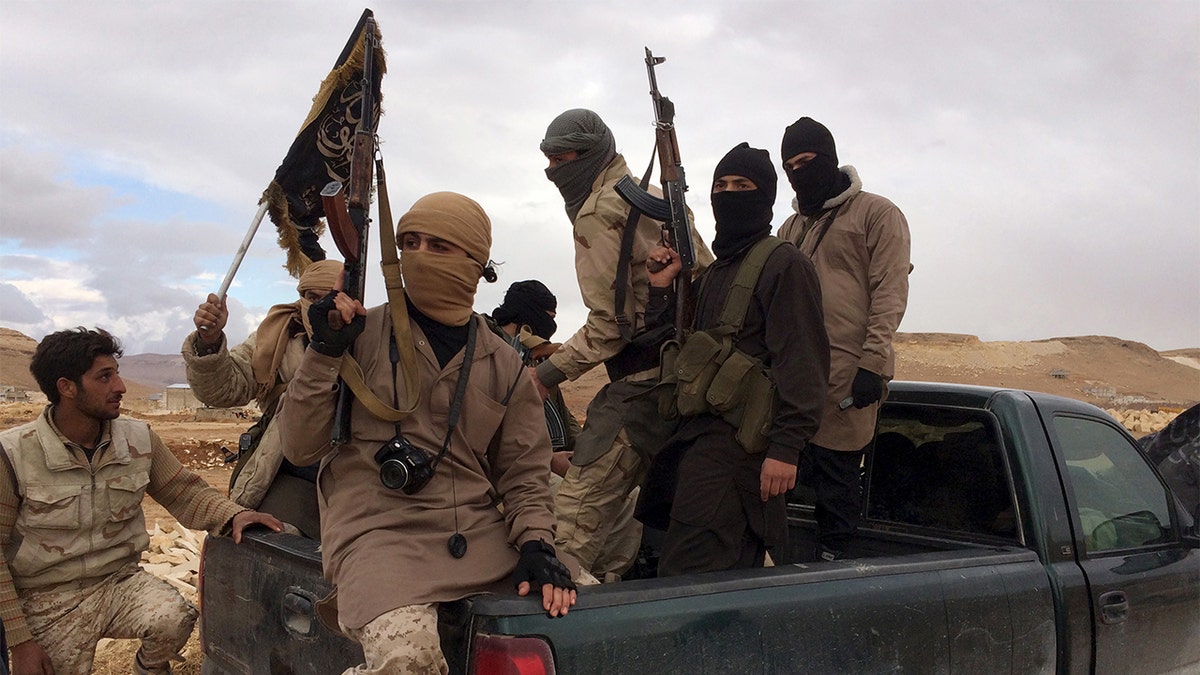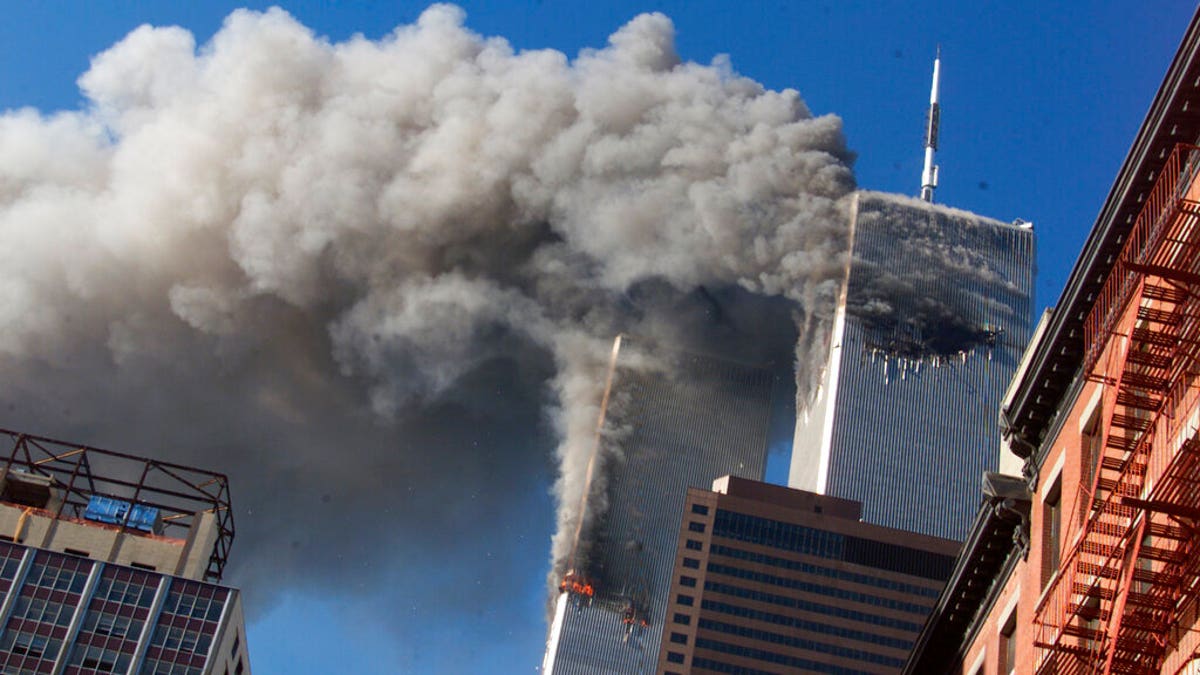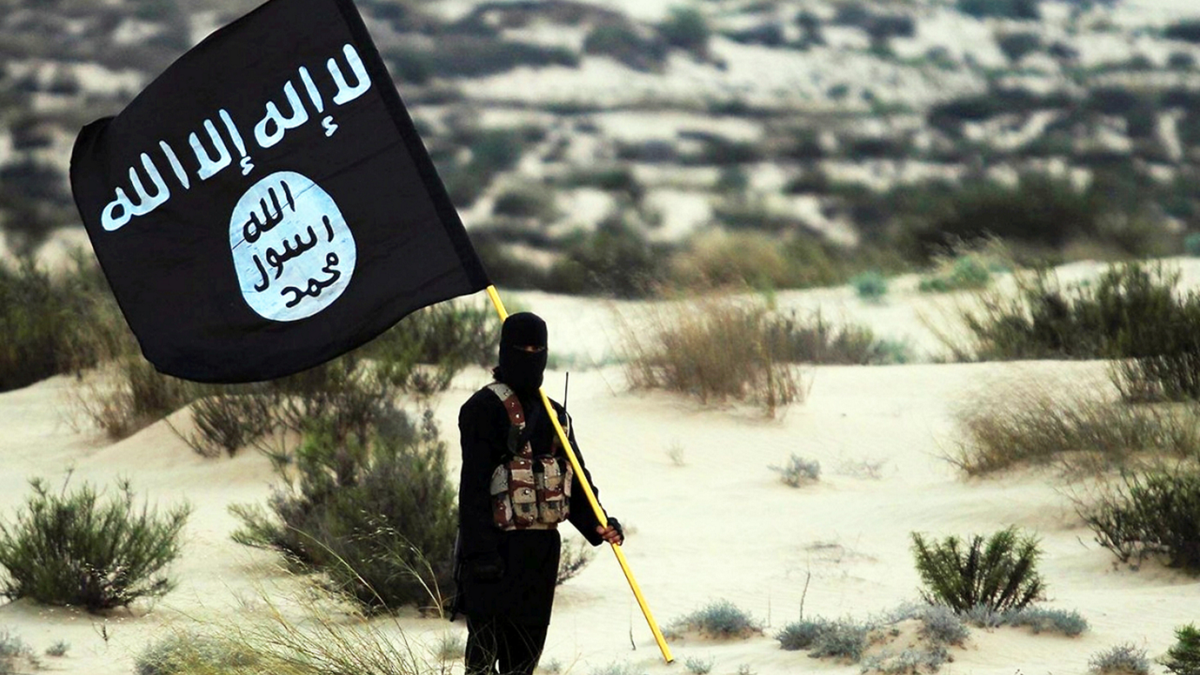America's 9/11 Foundation Ride visits all three crash sites from September 11, 2001
Roger Flick, executive board member of America's 9/11 Foundation and Eric Sjurseth, co-founder, joins 'Fox & Friends Weekend' with his daughter to discuss the 9/11 Ride honoring victims and first responders of the attacks 21 years later.
More than 20 years into the War on Terror and a year after the Taliban takeover of Afghanistan, terrorism still remains a threat to American security and interests around the globe.
"I think security has certainly improved," Long War Journal Managing Editor Bill Roggio told Fox News Digital. "You haven't had a major 9/11-style attack. There have been other attacks, but certainly nowhere near the magnitude of 9/11."
Much has changed since al Qaeda terrorists hijacked planes and sent them crashing into New York City's World Trade Center and the Pentagon, resulting in an over two-decade war on terrorism and overhauls of federal intelligence and law enforcement agencies aimed at preventing another attack.
Some changes, such as the addition of the Department of Homeland Security, have made the U.S. less vulnerable to attacks, experts say.

Al Qaeda-linked Nusra Front fighters carry their weapons on the back of a pick-up truck. (REUTERS)
"We have learned since 9/11 how to protect Americans from terrorism," President Biden’s counterterrorism adviser, Elizabeth Sherwood-Randall, said last year during an appearance at the Atlantic Council. "It isn’t fail-safe, and terrible things still happen. But through a combination of actions abroad and at home, we have thus far been able to disrupt and prevent another 9/11-style attack."
Yet, the threat that shocked Americans 21 years ago remains strong throughout the world.
"The threat that emanates from terrorist groups across the world remains and has metastasized in regions where there wasn't a jihadist presence," Roggio said.
According to a Washington Post-ABC News poll conducted last year, 49% of Americans believe the country is safer today than it was before 9/11, while 41% believe the U.S. is less safe than it was 21 years ago.
ICONIC 9/11 PHOTOS AND THE PHOTOGRAPHERS WHO SHOT THEM: HERE ARE THEIR STORIES
The numbers mark a dramatic departure from the same survey two years after the 2001 invasion of Afghanistan. In 2003, 67% of Americans believed the country was safer compared to 27% who said it was less safe.

Smoke rises from the burning twin towers of the World Trade Center after hijacked planes crashed into the towers in New York City. Sept. 11, 2001. (AP)
An NPR/PBS NewsHour/Marist Poll conducted last year had worse results, with 30% of respondents believing the country is safer than it was before 9/11 compared to 44% who said it is less safe.
America's chaotic withdrawal from Afghanistan after nearly 20 years of war, which resulted in a return to Taliban rule, may justify that pessimism. Roggio said the situation on the ground now may be worse than before 9/11.
"Today, Afghanistan is fully under Taliban control with the help of al Qaeda," Roggio said, noting that in 2022 a significant resistance to the Taliban, such as the North Alliance pre-2001, does not exist.
FORMER FLIGHT ATTENDANT TO HONOR 9/11 VICTIMS BY PUSHING BEVERAGE CART FROM BOSTON TO GROUND ZERO
The foothold al Qeada has in Afghanistan provides the organization with two important strategic advantages, safe haven and state sponsorship. Like before September 11, 2001, the terrorist organization can use Afghanistan as a base of operations with little fear, providing safe haven for it to recruit, train, and possibly carry out attacks. However, unlike in 2001, the Taliban completely controlling the country means the organization will have a powerful ally and plenty of protection.
Making the threat potentially more deadly is that terrorist organizations have both multiplied their numbers and spread to more far-flung regions of the world, making it difficult for the U.S. to track and fight the organizations on multiple fronts.
"Al Qeada has active insurgencies in places like Yemen, Somalia, Pakistan, Mali, and all throughout Africa," Roggio noted. "It has a large cadre inside of Syria and then you have the Islamic State as well, operating in many of the same areas as well as in Iraq."

A masked Islamic State soldier poses holding the ISIS flag. (Pictures from History/Universal Images Group via Getty Images)
Roggio pointed out that despite the spreading threat, the U.S. and other Western governments have shown little appetite for an offensive campaign against terrorism. Three consecutive U.S. administrations have vowed to put a halt to "endless wars" overseas, eventually resulting in the deal with the Taliban and the abandonment of the American position in Afghanistan.
FOX CORP. ANNOUNCES $1M DONATION TO TUNNEL TO TOWERS IN SUPPORT OF FIRST RESPONDERS, MILITARY HEROES
However, no longer taking the offensive in the war does not end it, Roggio argued, noting that many organizations across the world are still committed to carrying out their plans.
"You can end your involvement in the war, but that doesn't mean the enemy has," Roggio said. "The enemy still gets a vote."
Considering the lack of U.S. commitment to the fight, Roggio worries that terrorist groups will be able to regroup and start plotting their next attack. He noted that many didn't expect terrorists to use box cutters and airplanes to attack the U.S. 21 years ago, arguing that they now may have the ability to plot their next large-scale attack while no longer on the defensive.
CLICK HERE TO GET THE FOX NEWS APP
"I don't want to give them the time and space to think about what this next attack against us would look like," Roggio said.
"They're indoctrinating, they're collecting funds, and they're plotting their next attack against the West," he added. "We have limited capabilities to reach out and touch them… and that gives them the ability to innovate."











































